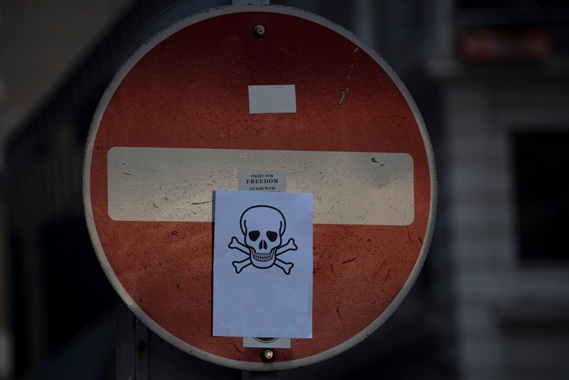March 15-21 is National Poison Prevention Week

This is National Poison Prevention Week. The Poison Center at the University of Kansas Health System and Safe Kids Kansas want to remind everyone that almost anything can be poisonous if it is used in the wrong way, in the wrong amount or by the wrong person.
“We want to remind everyone that the best way to prevent poisoning is by making sure you always read and follow labels, keep items in their original containers, and keep potential poisons locked up, out of sight and reach of children and pets,” said Cherie Sage, State Coordinator for Safe Kids Kansas.
Poison Centers are for everyone. While poison centers get more calls about children, the calls about teens, adults, and older adults tend to be more serious. Nearly 60% of calls to the Kansas Poison Control in 2019 involved medicines or pharmaceuticals. However, other common poisons include household products, plants, mushrooms, pesticides, animal bites and stings, carbon monoxide, and many other types of non-pharmaceutical substances. Here are the top potential poisons by age group to help keep yourself and your family safe.
Young Children:
- Medicines
- Cosmetics and personal care products
- Household Cleaners
- Pain Medicines
Tweens and Teens (ages 6-12):
- Pain medicines
- Antidepressants
- Non-food items (toys, magnets, batteries, etc.)
Adults:
- Pain Medicines
- Sleep medicines and anxiety/mood medicines
- Antidepressants
Older Adults:
- Heart medicines
- Pain medicines
- Sleep medicines and anxiety/mood medicines
“The best piece of advice we can give is to program the Poison Help number, 800-222-1222, in your phone and post it visibly in your home. This way you are prepared in the event of a poisoning emergency or simply have questions,” said Stefanie Baines, Education Coordinator for the Kansas Poison Control Center.
If you think someone has been poisoned, call 800-222-1222 right away. Fast, free, expert help is available 24-hours a day, 7 days a week.
For more information about preventing accidental poisoning visit www.kansashealthsystem.com/poison and www.safekidskansas.org.



